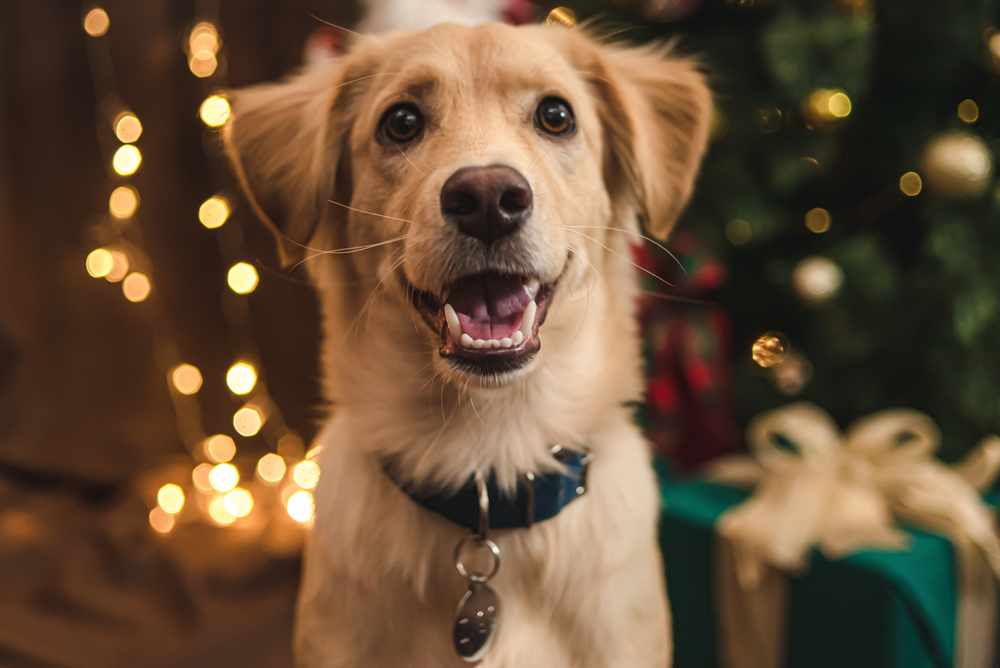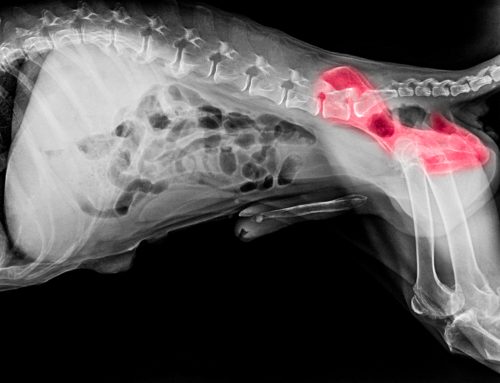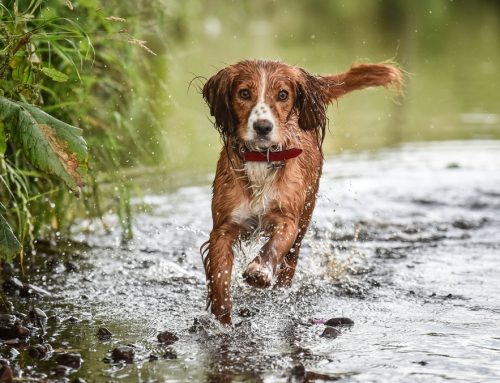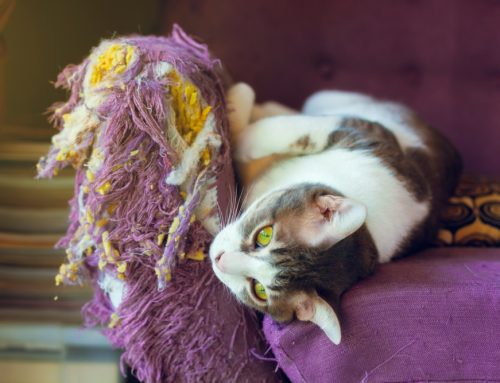The holiday season, with its festive decorations, delicious feasts, and lively gatherings, is a joyous and celebratory time. However, the traditional trappings pose potential hazards to your pet. From the abundance of sweets to alluring decorations, pet safety threats abound during this festive time of year. Our Neighborhood Veterinary Centers of Waller team wants to guide you through the holidays without compromising your pet’s safety. Read our team’s tips on how to make the holidays safe and enjoyable for your four-legged friend.
#1: Update your pet’s identification
During the holiday season, your home likely buzzes with activity, as the front door always seems open for visiting guests, gift deliveries, and excited children on school break. This hustle and bustle creates numerous opportunities for curious pets to slip out unnoticed. An unexpected New Year’s Eve firework can startle your pet and cause them to run off in fear if they are unrestrained while a door is open. Identification is especially important if you are traveling with your pet. Should your pet go missing, help ensure they can be returned to you by doubling up on their identification. Update your pet’s collar identification (ID) tags so they are legible and secure. If your pet has not been microchipped, have our Neighborhood Veterinary Centers of Waller team perform this quick and pain-free procedure on your furry pal.
#2: Plan ahead for holiday pet travel
The holidays can be stressful even if you and your pet are staying put, but adding holiday travel plans can make the season more chaotic. Whether your pet will be tagging along or staying behind, plan for their wellbeing far in advance. Help ensure that holiday travel will be as stress-free as possible for you and your pet by considering the following
- Traveling with your pet — Whether you’re traveling by air, rail, or car, ensure you and your pet are prepared. Schedule a pretravel veterinary appointment to ensure your pet is healthy and up-to-date on their vaccinations. If your pet is going on the trip, they will likely need a health certificate for travel. Check with your destination for specific rules regarding pet travel and required documents.
- Boarding your pet — Boarding facilities are in high demand during the holidays, so ensure you book your pet’s spot well in advance. If your pet has never stayed at the chosen facility, take a tour and bring them along so they can become familiar with the new environment’s sights and sounds.
- Packing for your pet — Remembering to pack everything for yourself can be difficult enough, and the easiest way to help ensure you have everything your pet will need is by creating a thorough list several days before traveling or boarding. Doing so will give you enough time to buy essentials and begin organizing.
#3: Consider your pet’s party style
The holidays are a time for celebrating with food, drinks, and guests. However, your pet may not enjoy the festive gatherings as much as you. Many pets experience stress and anxiety when their home is overrun with a large crowd of unfamiliar people, so ensure your pet has a quiet area where they can escape the party commotion. In your pet’s tranquil escape, include distractions such as their favorite toy, blanket, and a food-stuffed toy (e.g., Kong). In addition, play soft, calming music to muffle the gathering’s sounds.
#4: Avoid sharing food with your pet
Pets are experts at gazing at you with their pleading eyes to tug on your heartstrings at the dinner table, and you may have difficulty resisting their begging. If your generous spirit gets the better of you, remember that many popular holiday dishes can be unhealthy, hazardous, or toxic to your pet. Avoid sharing food with your pet, and ensure they do not have access to any of the following pet-toxic foods or ingredients:
- Meat bones
- Turkey skin and trimmings
- Gravy
- Ham
- Onions, garlic, shallots, and leeks
- Grapes, raisins, and currants
- Dairy products
- Chocolate
- Macadamia nuts
- Alcohol
- Caffeine
- Unbaked yeast dough
- Sugar-free foods and candies containing xylitol
#5: Beware of decorations that pose hazards to pets

Holiday home decor adds a festive touch to any celebration, but many decorations can be hazardous if your furry pal chews or ingests them. When planning your home’s holiday decor, ensure your pet cannot access the following objects:
- Candles — Inquisitive pets may venture too close to burning candles, and singe their whiskers, spill hot wax, or start a fire.
- Garland and tinsel — If you have a cat, forgo the garland and tinsel, which can commonly cause life-threatening intestinal obstructions if your whiskered pal ingests them.
- Christmas tree — Ensure your Christmas tree is securely inserted into the base to prevent it from falling on your pet.
- Plants — Many seasonal plants are irritating or toxic to pets if ingested, including ivy, holly, mistletoe, and poinsettias.
- Glass ornaments — Low-hanging ornaments are easy for a pet to reach and break, potentially lacerating their mouth, face, or paws. Leave the bottom branches bare, keeping ornaments out of your pet’s reach.
Ensure your pet is healthy and prepared for holiday fun by scheduling their annual veterinary wellness exam. Schedule your furry pal’s appointment with our Neighborhood Veterinary Centers of Waller team.







Leave A Comment